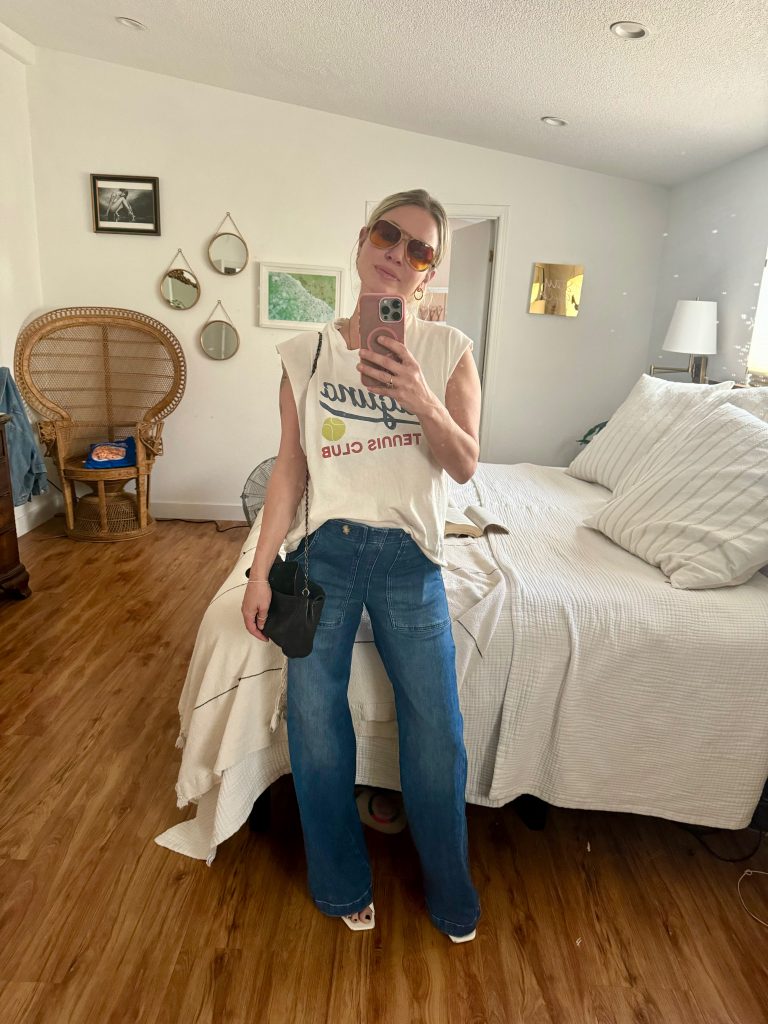
If we’re being honest, I don’t think it was my marriage that broke me. It was all the marriages.
I just finished reading this book, Fleishman Is In Trouble. It’s about divorce – and specifically about a woman who, one day, simply disappears – abandons her marriage and her job and her children while her husband holds up the fort, so to speak. It involves major twists that I won’t spoil for you because you really should read it – but I don’t think it’s a spoiler to tell you what I took away from it. Which is that this book explained my own story to me in a way I hadn’t fully comprehended before.
At the crux of the issue is the plight of the working mother. I shy away from this topic because in our present culture there is such (completely valid) sensitivity to the different ways women approach parenting. There is a danger, when you identify yourself as a “working mother,” of creating distance between yourself and the other kind of mother – the one who “doesn’t work.” But who does! Of course she does! She does the hardest job!
And it is true: Being a parent is the hardest job you will ever have. But I am a parent. And I also have a job, both because I have to and because I want to (by which I mean I also have to, for myself). I do not judge women whose calling is to be with their children all day and every day; I admire them and respect their choice.
But I am tired of pretending that what we do are variations on a theme. Because when we do this, we run the risk of ignoring what’s happening to working mothers, which is that they are trapped in a system designed to break them.
Forget about striations of “hardness,” or “effort.” It’s all hard; life is hard when you’re a grownup. There are specific hardnesses unique to the work of staying home with one’s children; I myself could not do it, and I mean that — in the same way that I could not be an economist, because I am poor at math, and I could not run a dog-grooming business, because I like my own dog, but not other people’s. I am fortunate that I have the resources to ensure that even if I cannot lay eyes upon my children every moment of every day, they will have other eyes laid upon them, and so I can attend to my next-highest need in Maslow’s hierarchy, which is to write.
But when I was married, here is what I did.
I worked. I wrote books and negotiated deals and shot campaigns and hosted shows. I worked all day, every day, and every night and every weekend, because that’s what you do when you work for yourself. I made more money each year than my husband, sometimes exponentially. That is not a slight on him; it is simply a fact.
I cared for our children. Not solely, of course: Some years they were in day care and some years they had a nanny and some years, when they were very young, I rationalized that I could do two things at once, why not, I can do it all!, and so I wrote with one hand and held a hungry mouth to my breast with the other, icing my nipples when they cracked and bled so I could do it again, and again, and again. They had and have two parents who both love them madly, of course. But on the day our first child was born and our job descriptions were issued, it became clear that they would never be the same.
I cared for our home. Paid the bills, hammered the nails, called the repairman when the washing machine broke, kept a laser eye focused on our equity line and current interest rates and does it make sense to refinance.
I made the appointments, volunteered for the pumpkin patch trips, cultivated the friendships that would lead to playdates that would create a village that I hoped would keep my children safe in this often-lonely world. I planned the weekend trips and kept track of when the towels needed to be washed and returned the field trip forms and scheduled the well visits. I rocked bouncy chairs with one hand and typed with the other, and when someone got sick, I switched the in-person meeting to a Skype and recited the apology I knew by heart.
This is not, of course, the only perspective on how it went. Just as so much of what I did was invisible; I am certain there was much that was invisible to me, too. I am completely certain that I fell short in many – oh god, so many – ways, some of which I am aware of, and some, I’m sure, that I’ll never learn about. But what it all added up to was an exhaustion so profound that it made me furious, and then angrier still that the only thing to do with that fury was bury it so deep that I could pretend it wasn’t there.
Jordan, my mom said one day when I confessed to my anger, my resentment, my exhaustion, that’s just the way marriage is. Men do what they do, and the women do the rest.
This is how it always is. It’s not anybody’s fault. Or maybe it’s everybody’s.
So I kept going. I worked, and worked, and worked even when I wasn’t working, because everything outside of my actual job was also my job. And then when night fell and the darkening sky said it’s okay, you can rest, I still couldn’t rest. Just like you can’t rest. Because the day has ended but it’s also just begun: there are meals to be made and sheets to be changed and emails that demand to be read because there’s no such thing as “after hours” anymore, and then there’s your partner, who may feel anxious or unfulfilled or frustrated or any of the many things that people are allowed to feel when they are released from their workplaces back into the world. And you understand those feelings – of course you do; you feel them, too – and so you twist your face into what you hope is an accurate representation of empathy and make sure that whatever you say or don’t say doesn’t make the feelings worse. And while you’re making sure not to make those feelings worse, watching your words and your gestures and tiptoeing around egos and patterns and long-simmering discontent that’s never been quite resolved, you’re also making dinner, and making beds, and making sure the health insurance deductible got paid and did I mention that your children are right there, sitting in their front-row seats, absorbing it all?
Eventually, of course, you cannot do this anymore: This dance where you do too much and pretend that you do not, because if your partner really knew the true volume of what you carry in your mind every moment of every day, they might get defensive, and you don’t want a fight; a fight is just one more thing you’ll have to do. And even if they hear you it’s not going to change anything, so why bother. This is how it always is. You can do it, other women do it, and so you keep your mouth shut, mostly, only occasionally allowing it to open enough to let a drop of poison slip out. You know that if you’re ever honest – really, truly honest – about how you feel, which is that none of this, not a single thing about it, is okay, you’ll fuck it all up.
So you skip being honest. And one day it’s too much, and you explode, and you fuck it all up anyway.




